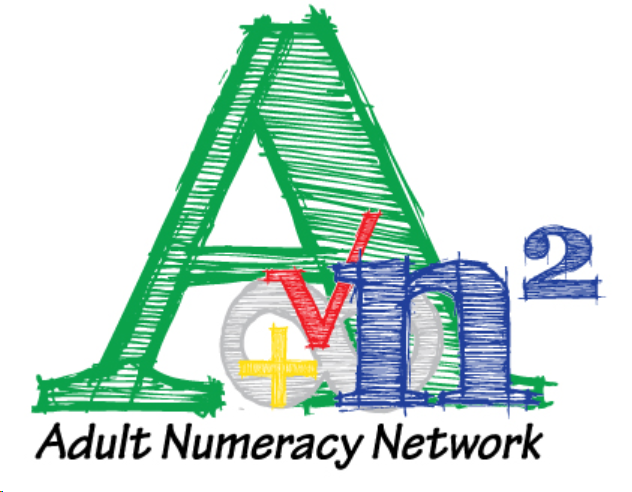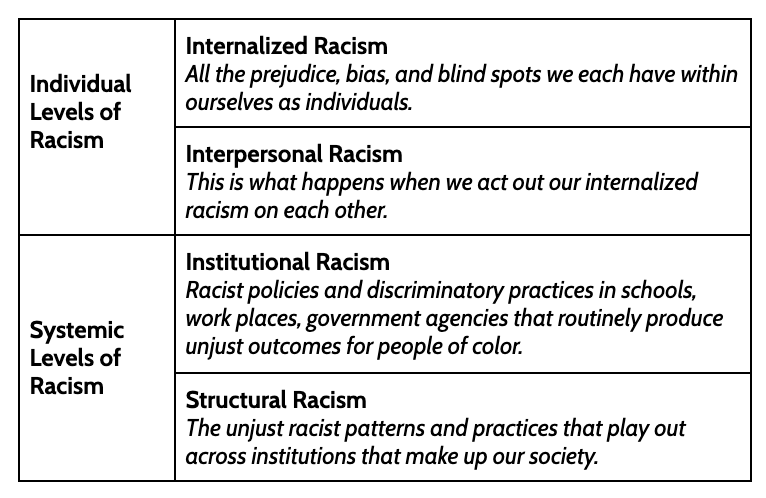
ANN Statement
We believe that the entire Black community matters. We are educators that serve marginalized populations, and because we believe that all people have the right and ability to be numerate, ANN has a place in the struggle to bring about a just world.
It has not been easy for us as an organization to figure out how to respond to this moment and how to take action moving forward. Our leadership has historically been almost entirely white and still is today. We recognize that fact needs to change. For some of us, we are learning for the first time about the experience of being a person of color in the United States. Others of us know first-hand. The realization that we have lived with, benefitted from, and possibly unintentionally contributed to the continued oppression of people of color has come hard for many of us. Being an adult basic education teacher in general, and adult numeracy and HSE math teacher in particular, is a labor of love. We always put our students’ needs first. It is hard for some of us to square what we are learning about implicit bias and the effects of systemic racism even in our own classrooms with our loyalty and dedication to help all students from all backgrounds and all beliefs. But we have a 25 year history of leaning into discomfort, and learning what we don’t know. It is the root of our strength and growth as individuals and as an organization.
Adult numeracy and HSE math is primarily a field of generalists, brave and dedicated teachers who are adult learners as often as we are adult educators. Our power is rooted in acknowledging what we don’t know and starting from there, because we believe we owe it to our students to improve. As we continually work to deepen our math content knowledge, so must we continually work to bring equity to math education. We challenge and push ourselves to create a powerful, transformative andragogy of teaching and learning because our students deserve a better education than they have received so far. And we are always finding new ways to improve: we are all of us better than we were five years ago, and not as good as we will be five years from now.
The Adult Numeracy Network is a national organization, with members coming from different perspectives and understandings. What draws us together and unites us is a desire to do the best that we can for our students and for each other and a commitment to continually challenge and develop our own teaching practice. We are lifelong learners, working with lifelong learners and we have a responsibility as educators to educate ourselves.

A NOTE ON VOCABULARY
As numeracy educators, we recognize the importance of attending to precision in our choices of words. Because some of the language in our statement may mean different things to different people, we take this space to define some important terms as they are used in our statement.
Racism: When we talk about racism, we recognize four levels of racism. (Adapted from the language developed by the organization Race Forward in their research paper, Moving Our Race Conversations Forward.)

Implicit Bias: In contrast to explicitly racist attitudes, implicit bias refers to an unconscious preference for one race over another. According to Project Implicit, “most Americans have an automatic preference for white over black.” This may lead us to unintentionally treating our Black students and our white students differently. Project Implicit has online tests to help us become aware of our own implicit biases on race and many other questions.
Marginalize: To put a group of people in a position of less power or less value within a society or group.
Equity: The difference between equity and equality is that equality means treating everyone the same and equity means treating people differently based on their needs with the intention of elevating everyone. For example, a teacher motivated by equality would make sure that she gave each student the same amount of individual support. A teacher motivated by equity would give more individual support to those students who needed it more and less to those who were capable of working independently.
 REMEMBERING OUR ROOTS
REMEMBERING OUR ROOTS
The ANN Principles of Teaching and Learning are rooted in three truths we hold as axiomatic:
- all students learn
- all adult basic education students deserve a quality math & numeracy education
- math needs our adult students, with their experiences and drive.
- We advocate for adult education students to do more than just memorize and repeat procedures because they are entitled to bring their whole selves to mathematics, especially their sense-making.
-
We believe that organizing our instruction around conceptual understanding, student sense-making, and worthwhile tasks drawn from the context of the real world can repair previous school experiences that marginalized students’ identities and diminished their belief in their capabilities to do and learn math.(1)
-
By valuing the various informal and alternate strategies students use to solve problems, by building collective understanding, by focusing on reasoning and sense-making (as opposed to answer-getting), we are disrupting traditional notions of what it means to do math and what it means to be capable in math.
-
We use routines like notice/wonder, push and support cards, and low floor/high ceiling tasks to ensure access for all students to participate in high-level mathematical thinking and to contribute their ideas.
-
Numeracy is more than math. Numerate behavior involves managing a situation or solving a problem in a real context by responding to information about mathematical ideas that is represented in a range of ways and requires activation of a range of enabling knowledge, behaviors, and processes. (2) It is our goal to continue to provide teachers and students a community to continually develop a practice in which numeracy allows math to be used as a tool to understand, reimagine, and when necessary, change our world.
The Adult Numeracy Network Mission Statement has guided our organization since it began in 1994, and continues to do so today.
-
“We are a community dedicated to quality mathematics instruction at the adult level.” Quality math instruction means educating the whole student and that includes understanding the trauma caused by living with systemic racism and working to do our part in dismantling it. Any of us would advocate for a student and help them advocate for themselves if we knew they were personally the victim of injustice. We can not remain silent when so many of our students are collectively the victims of injustice, especially when that injustice has specifically led them to be in need of adult numeracy education.
-
“We support each other and encourage collaboration and leadership.” That includes creating spaces for our members to explore the things they are passionate about and to find and network with other teachers with similar passions. There is so much important work to be done within adult numeracy. We have created the ANN Working Group for Racial Equity in Math Education to provide a space for any teachers whose current passions in adult numeracy are focused on the intersection of anti-racism and math education. If you are interested in joining or learning more about this working group, please contact: sarah1729@gmail.com and mark.trushkowsky@cuny.edu.
-
“We influence policy and practice in adult math instruction.” We believe that includes educating ourselves and the field beyond our membership on how our students' learning is impacted by systemic racism, working to mitigate those effects, and working to dismantle the systems that cause them in the first place.
NEW RESOURCES
We have created a Math and Social Justice section on the ANN Website. We will use this space to provide resources for our community to deepen our own understanding of racism and white supremacy, both in terms of history, but also in terms of implicit biases that impact our practice. This space will also be a growing source of materials for teachers to explicitly use math to recognize and challenge injustice in the world around us.
NOTES
(1) For an in-depth discussion of how traditional mathematics education practices have contributed to systemic racism, see The Racialization of Mathematics Education (Hand, V., and Spencer, J.)
(2) Gal, I., van Groenestijn, M., Manly, M., Schmitt, M.J., and Tout, D. (1999). Adult Literacy and Lifeskills Survey Numeracy Framework Working Draft. Ottawa: Statistics Canada.
